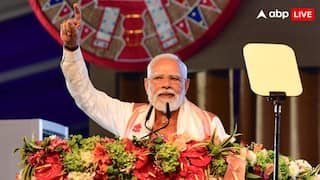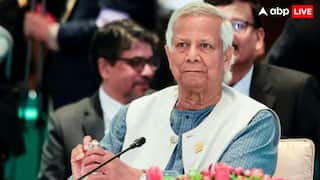Asian Development Bank Likely To Look At Fresh Issuance Of Rupee Denominated Bonds
In the past, multilateral funding agency Asian Development Bank (ADB) raised funds in rupee denominated bonds to finance projects in the country

Asian Development Bank (ADB) President Masatsugu Asakawa on Tuesday said the bank will explore the option of raising resources through rupee denominated bonds, reported by PTI. Raising funds in local currency reduces forex volatility, he said in Incheon.
"We are encouraged to increase our local currency financing to avoid any kind of foreign exchange risk," Asakawa said, while adding that the decision will be based on market condition, demand and supply.
In the past, multilateral funding agency Asian Development Bank (ADB) raised funds in rupee denominated bonds to finance projects in the country.
In January 2021, the ADB listed 10-year masala bonds or Rupee denominated bonds, worth Rs 300 crore on global securities market platform of India INX, the international exchange located at International Financial Services Center- Gift City in Gujarat. Prior to this, the ADB raised Rs 850 crore, about USD 118 million, from a new issue of offshore Indian rupee-linked 10-year bonds.
This represented ADB's first new maturity raised in Indian rupees since 2017 and contributes to an established yield curve which stretches from 2021 through 2030 with Rs 7,240 crore or $1 billion of outstanding bonds. Besides Indian Rupee, ADB has raised resources from other local currency bonds including Georgian lari, Indonesian rupiah, Kazakhstan tenge, and Philippine peso.
Speaking to reporters at the start of the 56th ADB's annual meeting of its Board of Governors, he said that the $25 billion investment into India over the next five years is subject to approval from the Board and not yet decided.
"It is my ambition. However, India has the largest requirements in South Asia right now. In my conversation with Prime Minister Narendra Modi during the bilateral meetings, PM Modi emphasised the importance of continuous construction of infra and renewable energy," he said.
Asakawa had conveyed to PM Modi during his visit in February that ADB's intention to provide USD 20 billion – USD 25 billion resources over 5 years was to advance the country's aspirations for fast, inclusive, and green growth.
Stressing that India is the fastest growing large economy, Asakawa said, India's economic growth will be beneficial for the entire South Asian region, including countries like Sri Lanka and Pakistan, that were facing food and energy crises.
While, ADB slashed India's GDP growth forecast for FY23 to 6.4 per cent from its earlier projection of 7 per cent, but for FY24, the growth rate is expected to be 6.7 per cent on the back of consumption, private investment and growth in industry.
India has been seeking an increase in investments in priority sectors of clean energy, infrastructure spending and climate financing from multilateral lending institutions, even as it has been pushing for efforts to boost financial inclusion.
Last month, the bank announced plans to provide at least $14 billion over 2022-2025 as support to ease a "worsening food crisis" in Asia and the Pacific, while aiming to improve long-term food security by strengthening food systems against the impact of climate change and biodiversity loss.
Meanwhile, Finance Minister Nirmala Sitharaman is on a four-day visit to South Korea starting Tuesday to attend Asian Development Bank's annual meeting. Besides attending the 56th Annual General Meeting of the Board of Governors of the Asian Development Bank (ADB) here, she will address investors and hold bilateral meetings.
Her packed schedule includes interactions with global economists, governors/finance ministers of the ADB member countries, and bilateral engagements. According to a release, Sitharaman will also have interactions with global business leaders and investors in roundtables, as well as an engagement with the community diaspora.






































